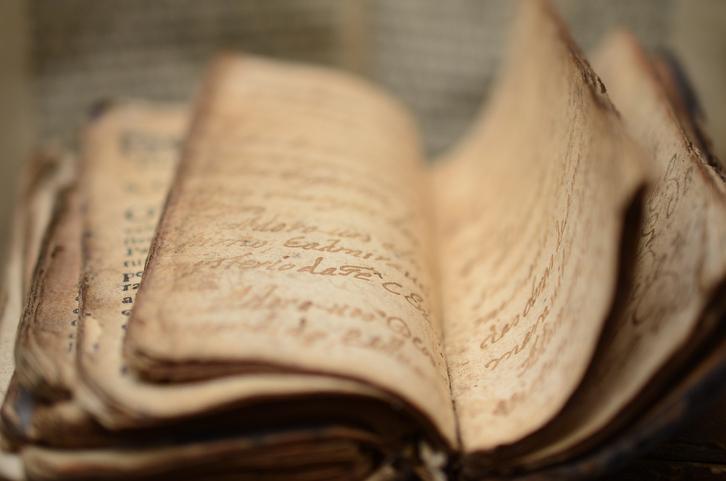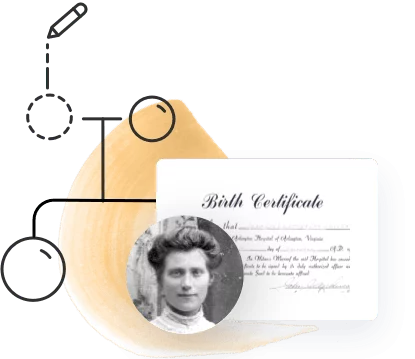
Every genealogist with a measure of experience knows to look for documents such as birth and death certificates, census records, immigration records, and headstones in cemeteries. But these are not the only resources that may yield useful information about your family history.
Below we’ve compiled some ideas for less conventional resources you may not have thought of checking.
Correspondence and diaries
Old letters, postcards, and diaries are goldmines for historians, as they can help us understand a lot about what the writer’s life was like and what was important to them. This is true for family historians as well! Letters were usually sent to family and friends living far away, and you may be able to glean plenty of information about your family from reading them carefully. Diaries may also include information about family members you may not find anywhere else.
The backs of photos and picture frames
Photos, in and of themselves, can give us a lot of information about the people they depict. But if there are inscriptions on the back, we may be able to learn a lot more about the circumstances under which the photo was taken. Always check the backs of photographs and picture frames.
Jewelry
Sometimes rings, bracelets, or necklace pendants include personal inscriptions. Lockets may contain photographs of family members, and if you can safely remove them from the locket, there might be something written on the back of the photograph, too. Charm bracelets were popular in the 1950s and 1960s, and the charms your ancestor collected may teach you about their interests — or even contain information about their personal history.
Baby books
Baby books gained popularity at the turn of the 20th century. They can prove a valuable resource for a genealogist, not only because of the details and anecdotes that were recorded about the subject of the book, but because more information about family may be noted in them. Perhaps there was a list of guests at the baptism or bris. Maybe the baby’s first haircut was administered by an aunt you hadn’t heard of.
Special occasion memorabilia
Invitations to weddings, parties, or other special occasions, R.S.V.P.s, greeting cards, thank-you notes, well-wishing telegrams… these are items that people tend to save and cherish, and they can teach us a lot about both the sender and the recipient — such as their locations, their relationships with each other, and maybe their lifestyle and financial situation.
Travel and leisure documents
Old passports and plane and train tickets can show you where your ancestors traveled. You may also find tickets to concerts or movies or playbills from shows, which can tell you what kind of entertainment your ancestors liked and where they went to enjoy themselves.
Yearbooks and school lists
Many countries had some form of public school system by the beginning of the 20th century, and private religious institutions have existed for centuries. You may be able to find mention of your ancestors in old school lists and high school yearbooks.
MyHeritage has a unique, easily searchable collection of yearbooks from the U.S.
School projects, papers, and certificates
Sometimes parents like to save their kids’ school projects, papers, and report cards. High school and college diplomas can tell you where and what your ancestors studied. A relative may have even written a paper about themselves or their families that mentions important information.
Old books
It is a well-known custom in some families to write down a family history on the inside cover of a Bible. Family members may also have scribbled down notes and details in the margins of other books they owned.
Church directories
Places of worship often keep private registers of their members. These lists might include valuable details on your relatives, such as their residences, donations they made, occasions they celebrated, and so on.
What unusual sources have you utilized when researching your relatives?



